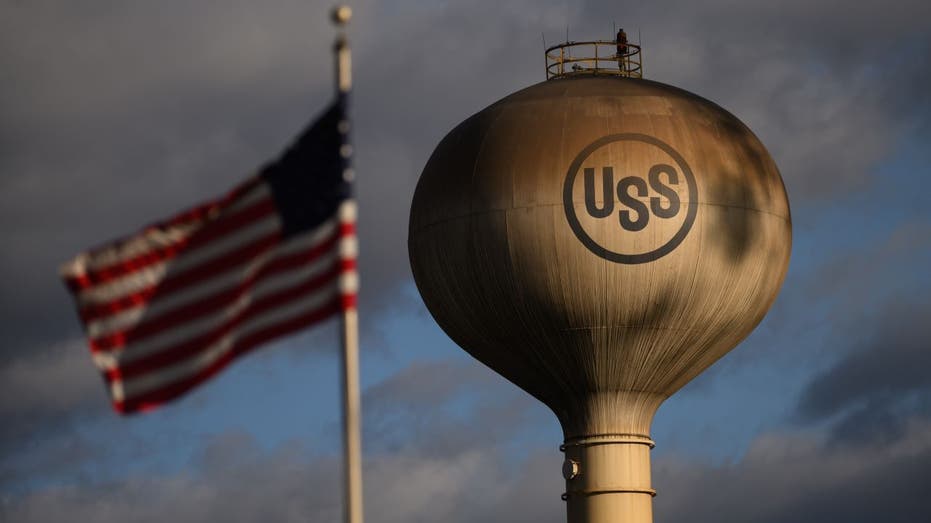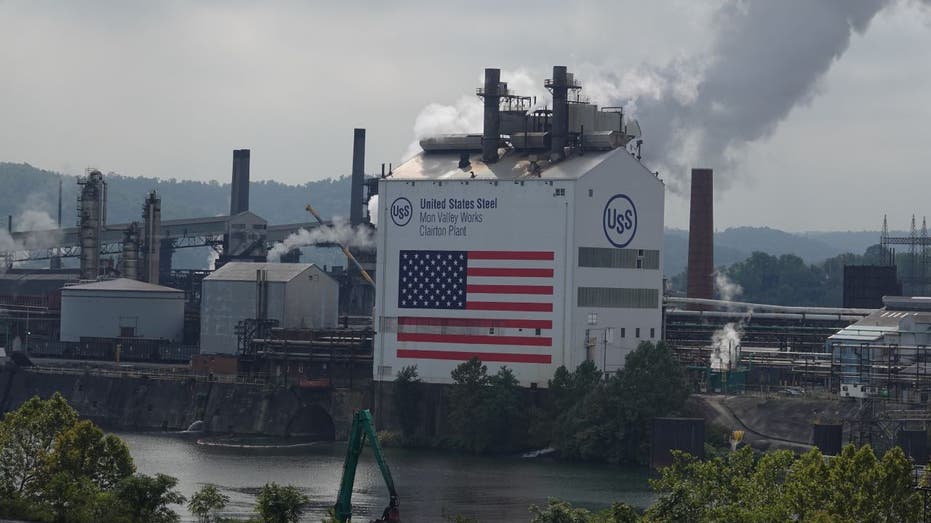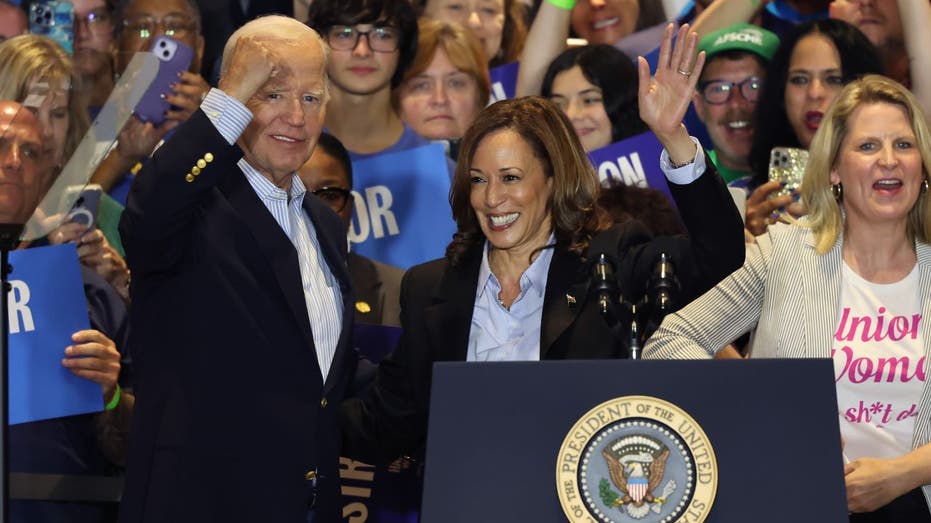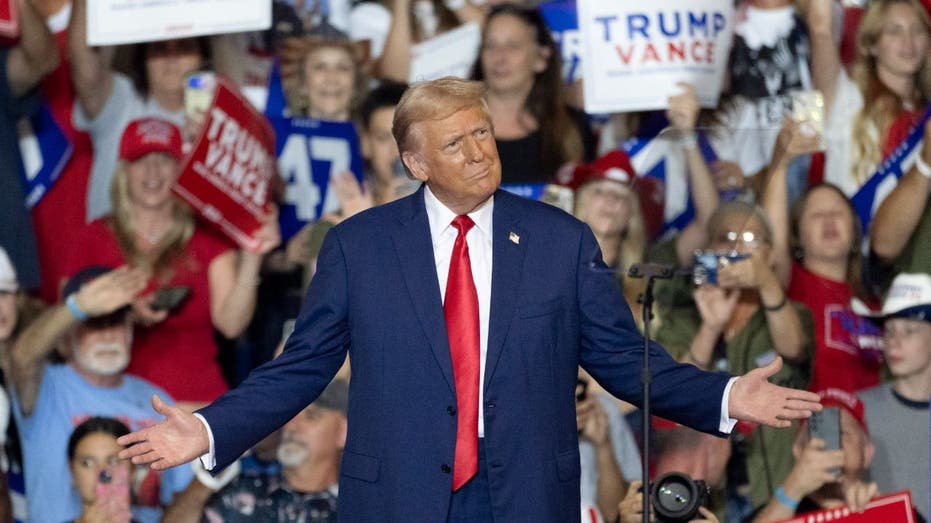Nippon Steel pushes back on national security concerns raised by Biden admin over US Steel purchase
Biden admin reportedly set to block US Steel-Nippon Steel merger on national security grounds
Harris opposes sale of US Steel to Japan's Nippon Steel
FOX Business' Jeff Flock has the details from Doylestown, Pennsylvania, on 'Cavuto: Coast to Coast.'
Nippon Steel is pushing back on concerns raised by the Biden administration that its pending acquisition of U.S. Steel for $14.9 billion would undermine U.S. national security.
Multiple reports emerged this week that President Biden is planning to block the deal on national security grounds upon the conclusion of an investigation by the Committee on Foreign Investment in the United States (CFIUS).
A spokesperson for Nippon Steel told FOX Business in a statement on Wednesday: "Nippon Steel is aware of the rumors regarding our proposed transaction with U.S. Steel. We have not received any update related to the CFIUS process. Since the outset of the regulatory review process, we have been clear with the administration that we do not believe this transaction creates any national security concerns."
"U.S. Steel and the entire American steel industry will be on much stronger footing because of Nippon Steel's investment in U.S. Steel — an investment that Nippon Steel is the only willing and able party to do so. Nippon Steel strongly believes that the U.S. government must appropriately handle procedures on this matter in accordance with the law," the company's statement added.

U.S. Steel's proposed merger with Nippon Steel may be blocked by the Biden-Harris administration on national security grounds. (Justin Merriman/Bloomberg via Getty Images)
A report by Reuters cited three unnamed sources who indicated that CFIUS sent a letter to Nippon Steel over the weekend explaining that the deal would damage American steel production and decrease the likelihood that U.S. Steel would continue to aggressively seek trade remedies and that the companies were given until Wednesday to respond.
| Ticker | Security | Last | Change | Change % |
|---|---|---|---|---|
| X | NO DATA AVAILABLE | - | - | - |
| NPSCY | NIPPON STEEL CORP. | 4.39 | +0.00 | +0.00% |
It's unclear from the Reuters report whether CFIUS identified other national security concerns with the transaction beyond its assessment of the deal's impact on steel production and trade. The U.S. and Japan are longstanding allies and are parties to a mutual defense treaty dating back to 1951.
VP HARRIS JOINS TRUMP, BIDEN IN OPPOSING US STEEL-NIPPON STEEL MERGER

U.S. Steel says it needs Nippon Steel's investment to keep mills open in Pennsylvania's Mon Valley and Gary, Indiana. (Thomas ONeill/NurPhoto via Getty Images)
Reuters reported that the companies expressed concerns that were revealed publicly by U.S. Steel on Wednesday in their response to CFIUS, writing, "Rejection of this transaction will lead to the idling of U.S. Steel's blast furnace facilities; … likely cost thousands of jobs; and ultimately weaken the quality and resiliency of steel supply to U.S. industries."
The companies added that the U.S. government was "acting in this matter not on the basis of the facts, the law, or the United States' national security interests, but on the basis of politics and the cynical exploitation thereof by third parties."
A U.S. Steel spokesperson told FOX Business, "We have not received any update or executive order in relation to the CFIUS process. We continue to stand by the fact that there are no national security issues associated with this transaction, as Japan is one of our most staunch allies. We fully expect to pursue all possible options under the law to ensure this transaction, which [offers the] best future for Pennsylvania, American steelmaking, and all of our stakeholders, closes."
NIPPON STEEL SAYS US STEEL ACQUISITION WOULDN'T CAUSE LAYOFFS, PLANT CLOSURES
U.S. Steel CEO David Burritt said in an interview published Wednesday by The Wall Street Journal that the company would likely be forced to close steel mills if the deal falls through. He said Nippon Steel's pledge of $2.7 billion in investment to modernize U.S. Steel's Mon Valley Works in Pittsburgh and the Gary Works in Indiana is needed to keep them competitive.
"We wouldn't do that if the deal falls through. I don't have the money," Burritt told the Journal. He added that the closure of those steel mills would likely prompt U.S. Steel to move its corporate headquarters from Pittsburgh to the South, closer to its other production facilities.

President Biden and Vice President Harris have expressed opposition to the deal. (Michael M. Santiago/Getty Images)
Nippon Steel has sought to assuage concerns raised by the United Steelworkers union, saying the deal wouldn't trigger plant closures and that it would refrain from layoffs through 2026. It has also pledged to preserve the U.S. Steel brand and to keep its North American headquarters in Pittsburgh, where U.S. Steel is based.
Nippon on Wednesday said it would ensure that the senior management and a majority of the board of directors at U.S. Steel would be American citizens. Nippon also said it will "prioritize production at U.S. Steel to meet the demand in the U.S. steel market."
NIPPON STEEL HIRES FORMER TRUMP OFFICIAL MIKE POMPEO TO ADVISE ON US STEEL ACQUISITION

Former President Trump has also expressed opposition to the merger. (Jim Watson/AFP via Getty Images)
Treasury Secretary Janet Yellen, whose agency oversees CFIUS, declined to comment on reports that the Biden-Harris administration is poised to block the deal, telling reporters at an event Thursday that the U.S. has a rigorous process to look at the national security implications of such transactions.
Taro Kono, a Japanese minister who is running to succeed Prime Minister Fumio Kishida, said Thursday, "There are times when the free market is outweighed by national security, environment and labor rights issues, but I am not sure if the acquisition of U.S. Steel is comparable to that."
"Perhaps it is the presidential election and everyone wants the labor union vote, but I would hope that the market will not be distorted by such a situation," Kono added.
GET FOX BUSINESS ON THE GO BY CLICKING HERE
U.S. Steel shareholders voted to approve the merger in April, when 98% of the shares voted in support of the deal.
The company's stock was up 4.2% on Thursday in early afternoon trading after it closed down 17.5% on Wednesday amid reports of the merger being blocked. Nippon Steel shares were up about 1.84% on Thursday.
FOX Business' Lydia Hu and Reuters contributed to this report.




















